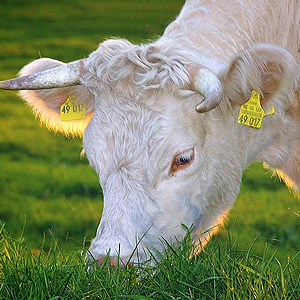The Importance of Proper Medical Care for Angus Beef Cattle Farming
Blog | March 10th, 2017
When you operate an Angus beef cattle farm, you need to ensure the well-being of each member of the herd in order for your venture to be productive and profitable. If you neglect the cattle in any way, it will diminish the profit you will receive in return for your efforts. For starters, you should understand that importance of proper medical care for your herd in addition to your other measures to raise healthy Angus cattle. Periodic vaccinations and checkups from a veterinarian are necessary to protect the health of your herd.
Health Issues That Can Negatively Affect Your Angus Cattle
Line up a veterinarian when you first start your venture into Angus beef cattle farming to guarantee the best preventative and treatment procedures to keep your herd from being negatively affected by such diseases or health issues as in the following examples:
1. Respiratory infections are present when the cattle have symptoms such as watery eyes, nasal discharge, coughing, lethargy and sneezing. In addition, infections such as this can lead to loss of appetite and weight. To prevent the infection from spreading throughout the herd, contact a veterinarian at the first sign of the above symptoms.
2. Foot Rot is another infectious condition that can strike your herd. Lameness is the first sign of this condition. On top of this, you should examine the cattle for hoof swelling, discharge and odour. While maintaining pastures in the correct manner and routine hoof care will help you lessen the risk of this issue happening, you need to call the veterinarian when the signs first appear for the correct treatment for your cattle.
3. Parasites such as roundworms, fleas, lice, tapeworms, lice, flukes and more can invade the body of your cattle without you realising it. While certain ones live on the external areas others thrive inside the body. Regardless of where they live, parasites can cause health, growth and reproductive issues along with lowering the productivity of the herd. When left untreated, certain parasites can lead to death. Proper sanitation measures will lessen the risk of parasites, but the veterinarian should perform a faecal test once every six months to detect internal parasites and a physical exam at the same time to detect external ones. A veterinarian can advise you on the ideal injectable or pour-on solution for the parasites.
For further details about the importance of proper medical care for Angus beef cattle farming, contact Southfork Angus. Our company supplies quality, functional and highly fertile Angus seed stock to the Mornington Peninsula area of Australia.
Optimized by NetwizardSEO.com.au
